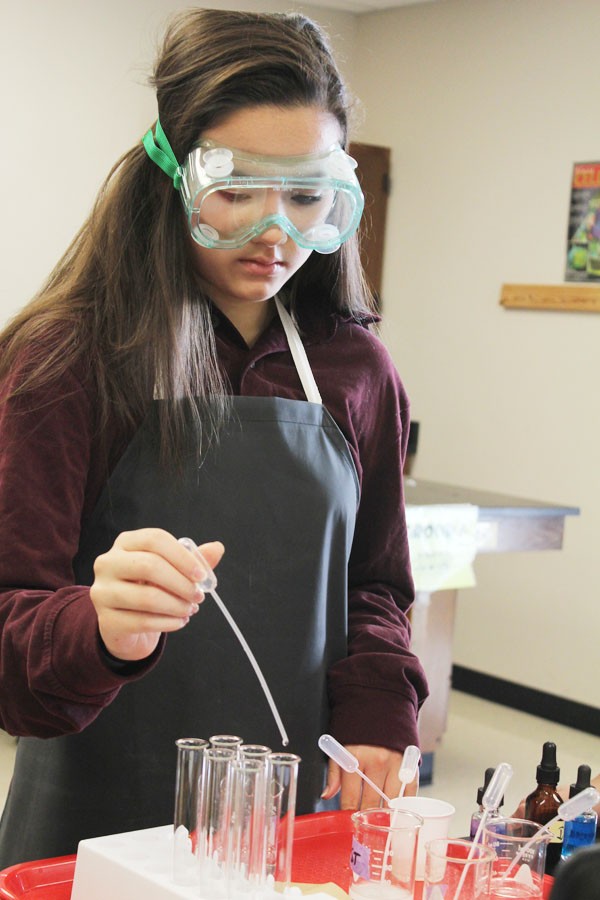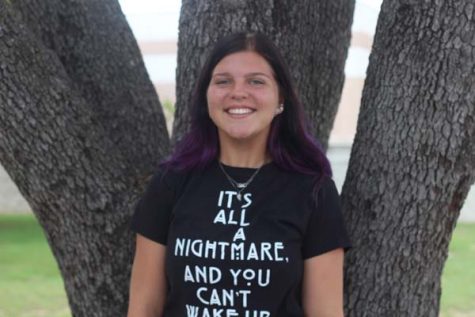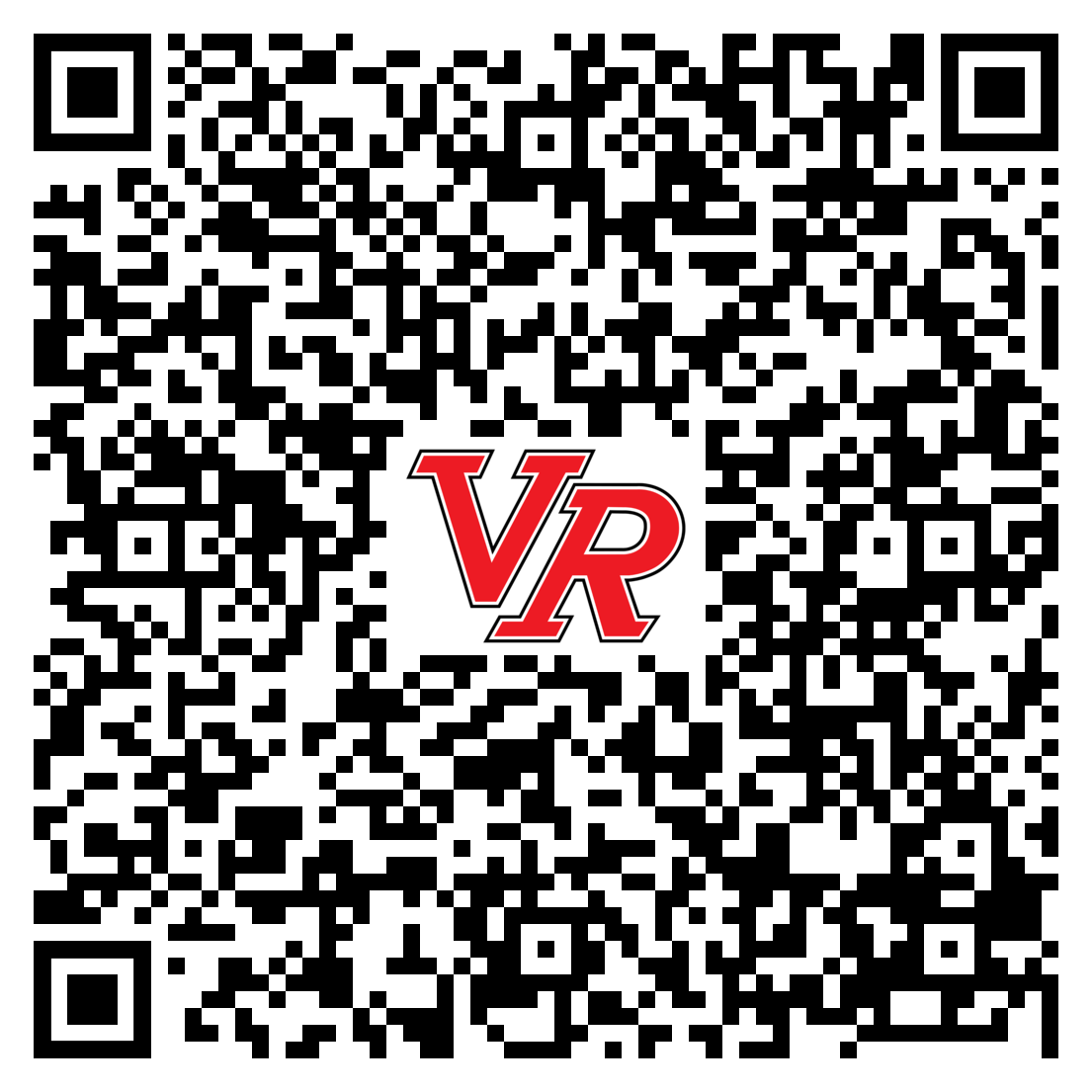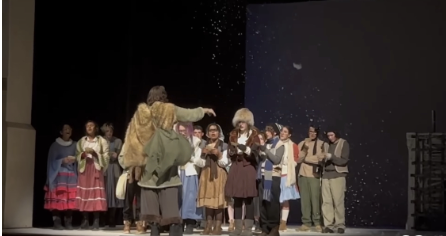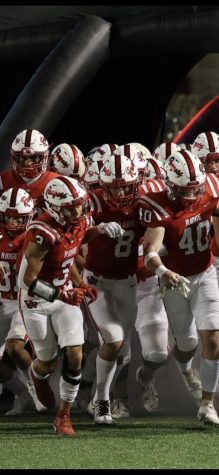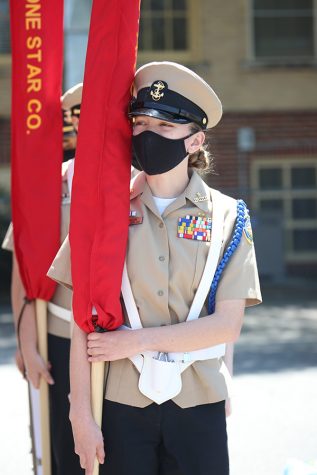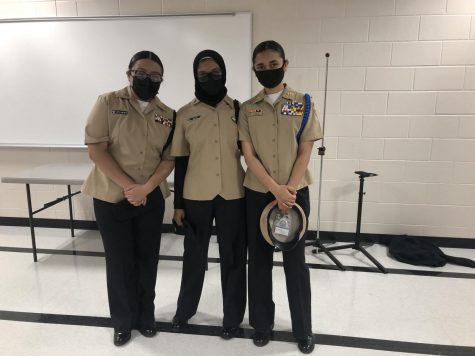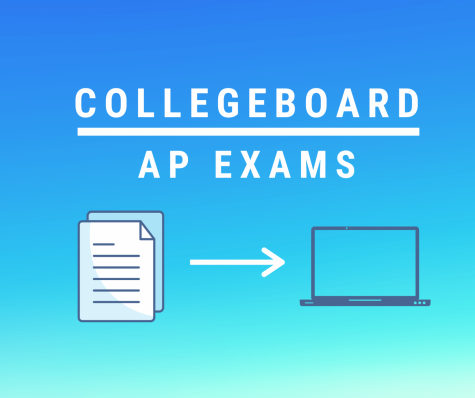Science fair participants prep experiments for January fair
December 3, 2015
Pre-AP Biology students are participating in the first science fair that takes place in the library on Jan. 14.
“The biggest thing to keep in mind is to be working on a new assignment in advance,” freshman Pre-AP Biology teacher Amy Knox said. “Adjustments can be made to the project. However, Projects may not go as imagined.”
The process for Science Fair is grueling according to Knox. Students must first come up with three ideas for a project and then get one accepted by their teacher when the school year starts. The teachers then teach the students how to do research and use Noodle Tools, Turnitin.com and Scienteer. Scienteer is a new website the school is using making this year a test trial. The students must produce a proposal, research plan and proof of implementation. This includes the procedure and list of materials for the project. Students will then begin the research paper which will endure several of peer reviews until they are perfect. The Austin Energy Regional Science Festival takes place on Feb. 17 at the Palmer Events Center. The goal is to then reach State.
“I got the idea of this project because I had a baby cousin that needed milk, and my aunt was going to put the bottle of milk in the microwave,” freshman Pre-AP biology student Lydia Neibauer said. “My mom and I believe that anything microwaved is unhealthy. This project is testing the hypothesis: What are the effects of Acidophilus in regular milk, microwaved milk and on the stove milk.”
Neibauer is planning to prove her hypothesis correct. She is passionate about her project and aims to gain attention from her dream college, Stanford, for medical school. Science fair is a great way to do that according to Neibauer.
“I look forward to proving my hypothesis correct,” said Neibauer. “However, I have mixed feelings about the Science Fair. My nerves are going to come to me when I try to explain my project to the judge.”
The judges consist of professionals and volunteers such as parents. They are trained beforehand to ask specific questions and to award points based on the student’s accuracy. Based on if the student won the science fair, they will prepare to move onto the next level. More than 300 projects fill the school’s library and lecture halls to capacity. The judges score the projects over a two day time period.
“It is great,” Knox said. “Even if a student doesn’t advance they get hands on experience and understand. I think the great thing is you learn to scientifically research and collect data. This prepares students for college.”
Over the past years, science fair students dominated regionals and state. About 3000 students participate in regionals. The Austin Energy Regional Science Festival serves students from Central Texas whose projects won at their schools’ science fairs. This includes Bastrop, Brazos, Burleson, Caldwell, Comanche, Fayette, Lee, Mills, Travis, Washington and Williamson. According to Neibauer, participating in and possibly gaining scholarships from the science fair would be great for both college resumes and school publicity.
“It’s not just about the winning,” Neibauer said. “It is about the educational experience. It is a way to inform my loved ones of the repercussions of microwaved things, like milk.”

